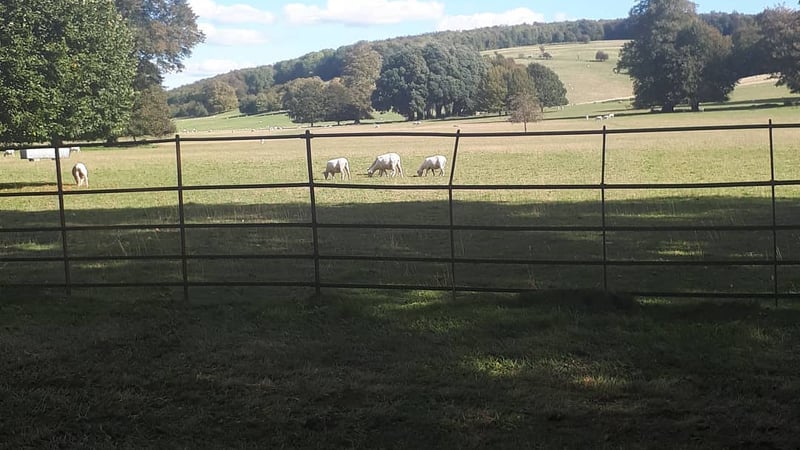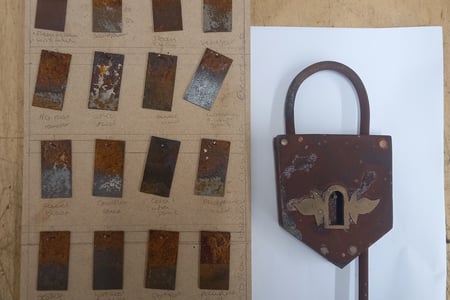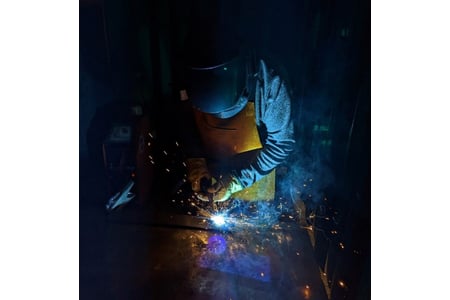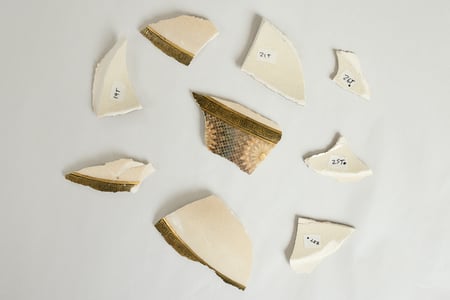Alex: Do you feel the sector is inclusive and accessible?
Riza: Yes and no. My experiences are that on a surface level, it is inclusive – there have been many initiatives and programmes to include a wider audience, but there are always agendas behind the plan. Considering the wealth of collections held in UK museums and archives, not many exhibitions or performances showcased are diverse. Why not? Are institutions ‘saving’ these collections so they can roll them out once, twice a year for impact?
Regarding access, many of these spaces have yet to make it wholly inclusive. I have been followed by guards and invigilators on occasions. There are also not many places offering any or enough interaction for deaf and blind visitors either.
Alex: In what ways are you privileged or oppressed?
Riza: Define privilege. Everyone has a level of privilege that places them at some advantage. Now, during this time of uncertainty, I am employed in a sector that I love which makes me privileged.
Prior to securing this role, I was like many other people working in the sector, on fixed term contracts, moving across the country for the few paid opportunities that become available, if you get it. I feel privileged that I am not necessarily tethered to any one place for example. There are moments where I wish for some security; to find employment in a supportive and encouraging place, doing a job I love, that I can reasonably commute to. Alas, that does not happen easily.
Alex: How much of your career is built on privilege?
Riza: Coming from a non-traditional background and late into the sector, there is a feeling of being disadvantaged. Absolutely. Therefore, I do not personally consider that my career is built on privilege. Hard work and tears, but not privilege. In conservation, there is a huge emphasis on credentials. Compared to a student or fresh graduate, I am not appealing to many organisations.
That stock paragraph one sees on job applications, “We welcome applicants from yada, yada, yada” has become just that, a statement placed at the end of the description. A HR box-ticking exercise, however, there have been active improvements in changing this - on a purely human resource side.
I also think conservation is largely perceived as a Western rather than Eastern pursuit; for example, established and prestigious conservation training is in the West. We are working on Western contexts and ideologies which may not necessarily work culturally in some regions.
My experiences are not unique - after studying several job descriptions outside of Europe, there is a lot of work to be done there about opening up opportunities too.
Alex: What barriers do you/others face?
Riza: Credentialism. Please, do not get so hung up on this.
The people who have the authority to make decisions such as writing job descriptions, shortlisting, hiring and even making criteria for further education need to put into action their focus on wanting to be more inclusive.
A vast proportion of my skills were gained through volunteering and on-the-job training. The rest were made up from my own drive, desire to learn, and update/top-up the knowledge. What I am trying to stress is that it can be learnt. If you are committed to opening doors for under-represented peoples in heritage, understand that this sector is not presented, easily accessible or known in some communities as somewhere you can go to visit, let alone work in.
So many courses and jobs list some form of qualification as a prerequisite.
In the last five years there has been a shift in wording for some to replace or include “or equivalent experience”. What does this even mean? Many times, it is a polite way of saying, “We want a graduate so if it’s down to a graduate and you, even if you have X amount of years’ experience, it is likely that we’ll pick the graduate over you”. In addition, these statements are prevalent in entry-level positions so there is a ‘risk’ of appearing overqualified once you have detailed your experiences to prove your suitability. A catch 22.
Alex: What positive experiences have you had? How can these be built on?
Riza: Recently, I went on a series of workshops organised by a large national museum. This was the first time in a long time that I have felt the learning environment to be almost everything a CPD [Continuing Professional Development] course ought to be. It was an inspiring, collaborative and safe space to share knowledge and exchange ideas. For now, these workshops stood out and have upstaged the rest.
I suppose, when I get the opportunity to lead or organise a training workshop, this experience can form the baseline.
On a professional side, during the pandemic, I have been seeking out other areas where Collection Care may be included. Working with IT and Facilities have been a big learning curve which highlighted some of my conservation ‘biases’. It offered me the opportunity to review and strip back my knowledge so I may express the gamut of Collection Care in the most accessible way.
Alex: How can we/the sector break down these barriers and empower others?
Riza: This is a hard one to express. We do not want people to feel that they are forced to act. At the moment, it is difficult not to be sceptical however, as there have been so many knee-jerk reactions where organisations clamber to issue statements and amend policies to appear they are committed to making changes in the culture.
Recruitment needs to change. If you can’t make changes on the ground, how can you make them at the top. It’s about winning hearts and minds. Everyone’s insecure in their jobs, you can’t be inclusive if you’re fearing for your own existence.
Engaging with colleagues/staff whom you consider are under-represented would be a good first step. Many of them do not hold positions of authority so it can be difficult for them to get their voices heard. However, this may be unrealistic because how willing are organisations to implement and follow this through?
Breaking down barriers: remind the sector that it is not special. In conservation, let us harness the power of people. The more people we get interested and engaged in the work, the easier it can be to highlight the need and importance for it. We as conservators have the privilege of working with materials unconnected to our own heritage, imagine the impact we can make when we enable interaction of the objects we care for, to the communities that have that connection.



